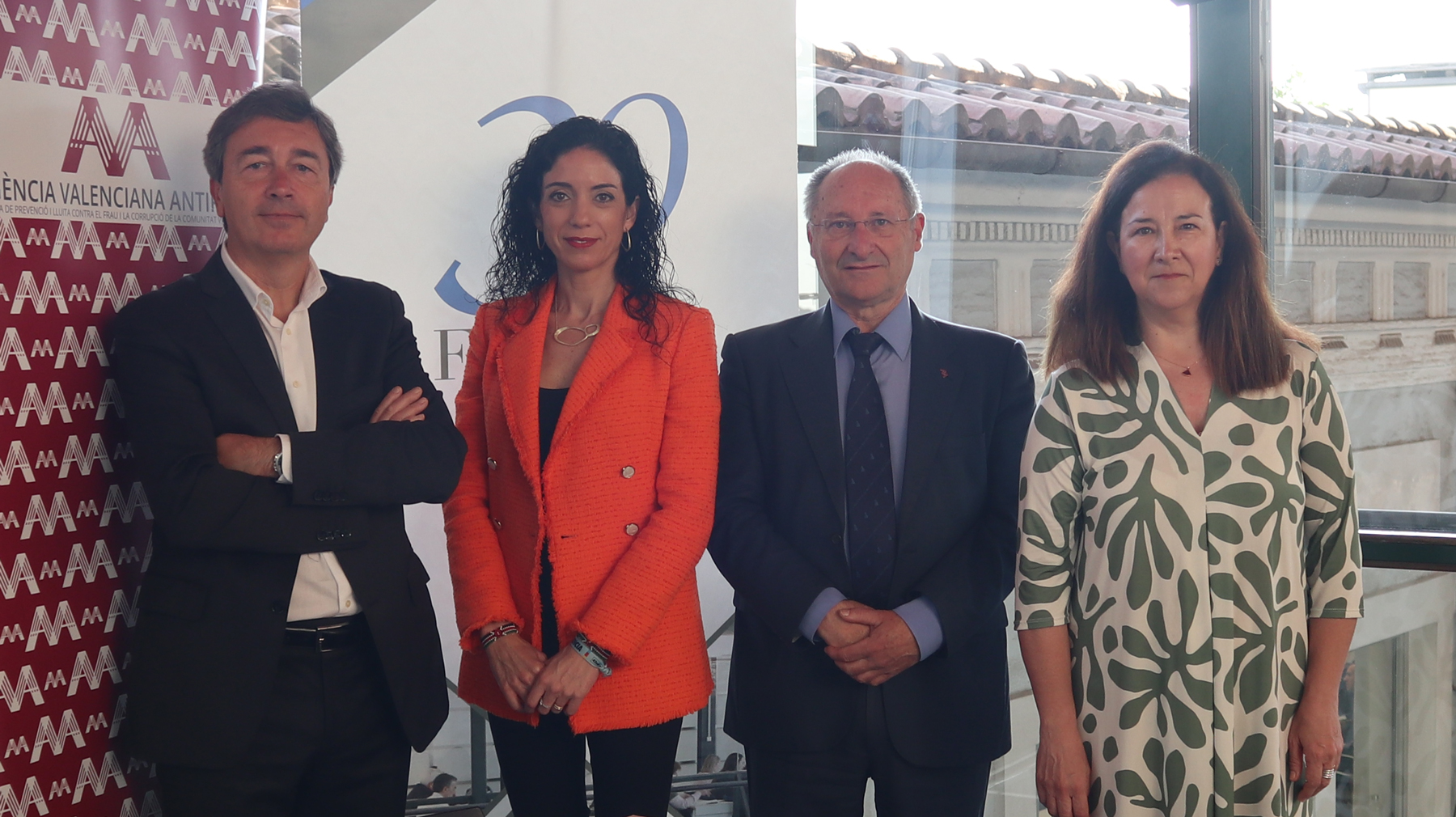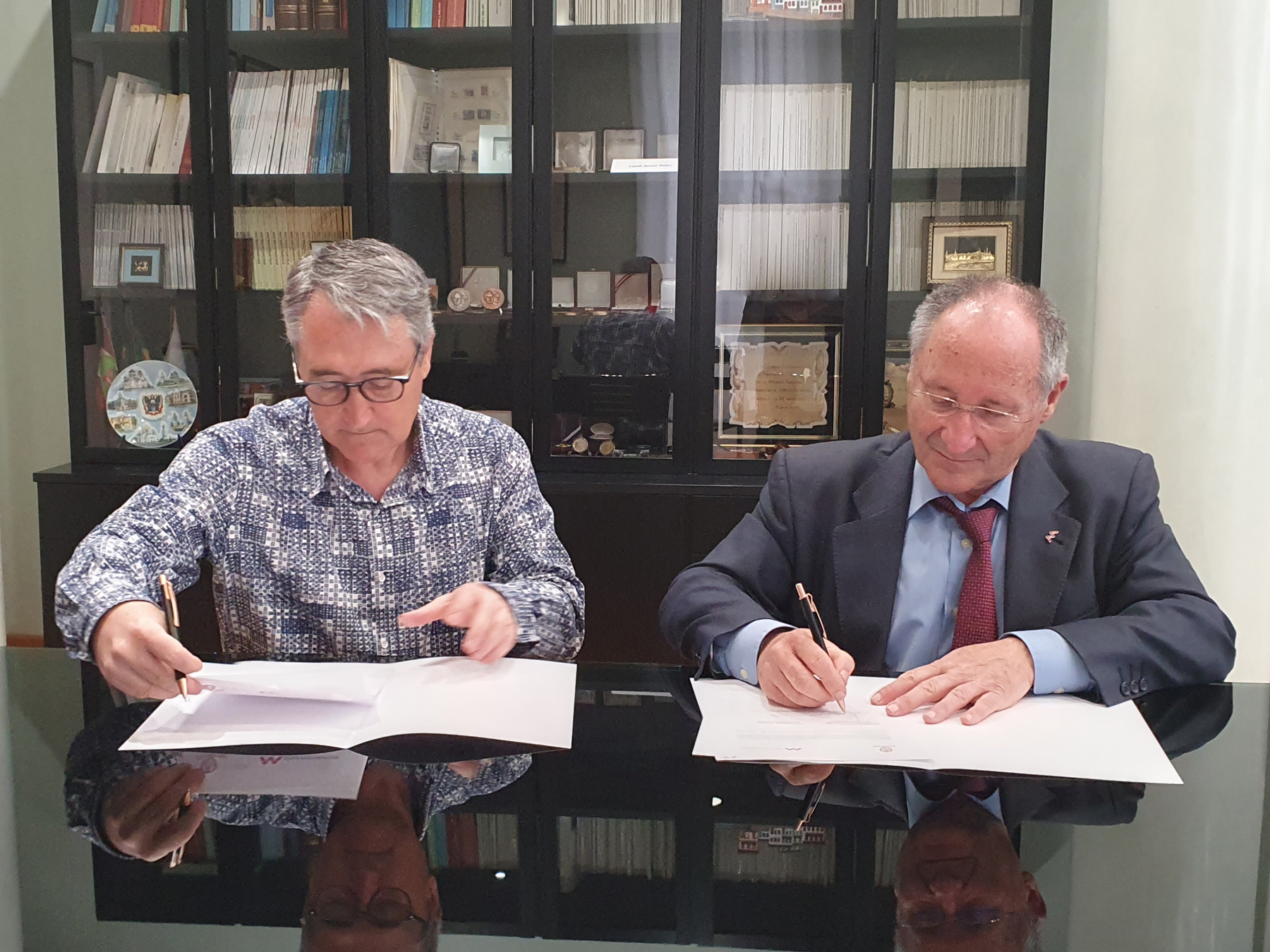#TrainingAVAF
The Ave María school in the Ribera Alta hosted a new session of the learning experience offered by the Valencian Anti-Fraud Agency in schools, institutes and universities in the Valencian Community.
On Friday, April 28, the 4th ESO class, with the collaboration of Professor Andrés Felici, was the protagonist of the training given by the Training Service technician, Pilar Moreno.
The activity “Docuforum AVAF” consists of two sessions in the classroom. In the first one, the viewing of the documentary “Corruption: harmful organism” from Pandora Box TV takes place and the students ask their doubts and questions. The second session, with the AVAF staff present in the classroom, answers to the issues raised through a historical and regulatory journey. It allows publicizing the international context in which the fight against corruption in public administration was born and the impact generated in the territorial scope of the Valencian Community.
The causes of corruption, as well as the differences between fraud produced in a small municipality and one with a larger population were some of the questions and doubts raised by the students, aged between 15 and 17 years.
If you are a university, high school or 4th ESO teacher in the Valencian Community and you are interested in having the training activity “Docuforum: Corruption, harmful organism” carried out in your classroom, do not hesitate to contact the training service of the Valencian Antifraud Agency through formacion@antifraucv.es




